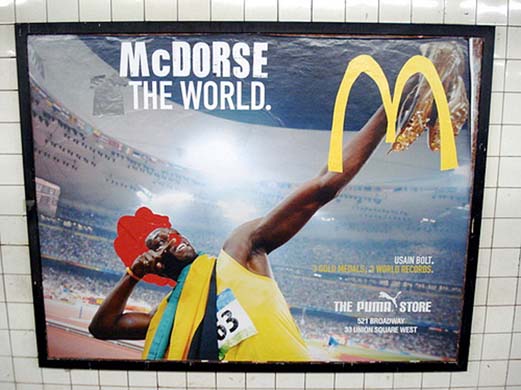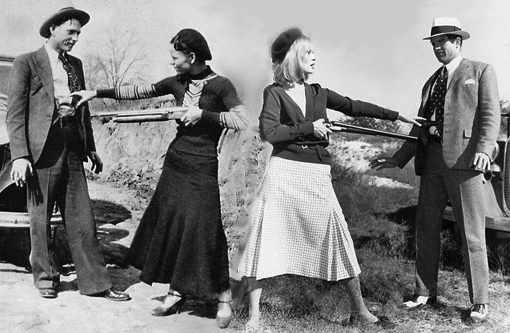Now Ishmael read that an angel of the Lord had said to Philip, "Go to the desert road that goes down from Jerusalem to Gaza." The looming of the spirit moved within Ishmael, that having no money or much to interest him on shore, he should quietly take to a ship and quit pausing before coffin warehouses.
So Ishmael started out, leaving the city of old Manhatto for New Bedford. On arriving at the Spouter-Inn, he found Queequeg, a native of an island far away on which his father was king. "Here then is Philip's Ethiopian eunuch," Ishmael thought.
Like the eunuch who had gone to Jerusalem to worship, Queequeg had just returned from the chapel, and was sitting on a chariot bench before the fire, with his feet on the stove hearth.
On his lap, a large book lay. He was counting the pages with deliberate regularity; and at every fiftieth page, stopping a moment, looking vacantly around him, and giving utterance to a long-drawn gurgling whistle of astonishment.
Ishmael then began to be sensible to a strange feeling of being mysteriously drawn towards him. No more were his splintered heart and maddened hand turned against the wolfish world. Rather, they became the very magnets that drew him to a man who would have repelled most others. Ishmael then recognised the spirit's urge to him to sit close by Queequeg and stay there. He thought, "I'll try this pagan friend, since Christian kindness has proved but hollow courtesy."
With much interest, Ishmael sat, closely scanning him. Through all his unearthly tattooings, Ishmael thought he saw the traces of a simple honest heart. Queequeg, meanwhile, never troubled himself with so much as a single glance at Ishmael; but appeared wholly occupied with counting the pages of the book.
Ishmael then noticed that Queequeg had stopped with this action in the middle of the book of Isaiah the prophet. Ishmael drew his bench near him. "Do you understand what you are reading?" Ishmael asked.
"How can I," he said, "unless someone reads it to me?" So he invited Ishmael to come and sit with him. Ishmael picked up the book at where Queequeg had left it open and began reading this passage of Scripture: "He was led like a sheep to the slaughter, and as a lamb before the shearer is silent, so he did not open his mouth. In his humiliation he was deprived of justice. Who can speak of his descendants? For his life was taken from the earth."
Queequeg asked Ishmael, "Tell me, please, who is the prophet talking about, himself or someone else?" So Ishmael endeavored to explain to him, from this scripture and the few pictures that were in the book, the good news about Jesus. Whereupon Queequeg told Ishmael that he had been actuated to leave his native land by a profound desire to learn among the Christians. So struck by his wild desire to visit Christendom, the captain of a whaling ship put the fine young cannibal down among the sailors, and made a whaleman of him.
As they sailed along, Queequeg said to the captain, "Look, here is water all around us. Why shouldn't I be baptized?" So the captain gave orders to stop the ship. Then both the captain and Queequeg were lowered in a whaling boat whereupon the captain, acting as chaplain, baptized him in the sea.
But, alas! the practices of whalemen soon convinced him that even Christians could be both miserable and wicked; more so, than all his father's heathens. Arrived at last in old Sag Harbour; and seeing what the sailors did there; and then going on to Nantucket, and seeing how they spent their wages in that place also, poor Queequeg gave his Christianity up for lost. Thought he, "It's a wicked world in all meridians; I'll die a pagan."
"And thus, as an old idolator at heart, I have lived among these Christians, wearing their clothes, and trying to talk their gibberish. Hence the queer ways about me."
Once Queequeg had finished his tale, Ishmael proposed a social smoke. Producing his pouch and tomahawk, Queequeg quietly offered him a puff. And then they sat exchanging puffs between us.
By hints, Ishmael asked Queequeg whether he did not propose going back to native island. He answered no, not yet; and added that he was fearful Christianity, or rather Christians, had unfitted him for a return. But by and by, he said, he would return, as soon as he felt himself baptized out of it again. For the nonce, however, he proposed to sail about, and sow his wild oats in all four oceans. They had made a harpooneer of him, and that barbed iron was in lieu of a sceptre now.
When their pipe had finished, Ishmael said, "Here is a jug of water. Why not be baptised out of it now?" Then both Ishmael and Queequeg went down into the inn's kitchen where Ishmael doused Queequeg with the jug of water. When Queequeg had wiped the water from his eyes, the Spirit of the Lord suddenly took Ishmael away, and Queequeg did not see him again, but spent the night rejoicing. Ishmael, however, appeared at Sag Harbour and traveled about, preaching the gospel in all the towns until he reached San Francisco.
mashed sauces
Samples from the opening chapters of Moby Dick provide the setting for this gargoyle.
The conversion of the Ethiopian Eunuch occurs in Acts 8:26-40.



